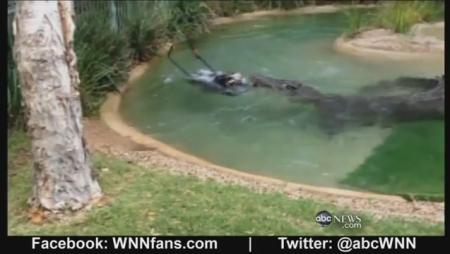BRUSSELS/TEHRAN (Reuters) ? Britain urged the European Union on Thursday to tighten sanctions on Iran over its nuclear program, as China warned against "emotionally charged actions" that might aggravate a bitter row between London and Tehran.
British Foreign Secretary William Hague stressed that his call for tougher economic action against Iran - which might stretch to an oil embargo - had nothing to do with Tuesday's storming of the British embassy in Tehran by protesters.
But a leader of Iran's Basij militia, which joined hardline conservative students in ransacking the British mission, said he was tired of decades of British "plotting" against his country.
Hague was expected to lead the push for the tighter sanctions when EU foreign ministers map out their response to a report the U.N. nuclear watchdog issued last month which suggested Iran has worked on designing an atom bomb.
"I hope we will agree today additional measures that will be an intensification of the economic pressure on Iran, peaceful legitimate economic pressure, particularly to increase the isolation of the Iranian financial sector," he told reporters.
Britain shut down Iran's embassy in London and expelled all its staff on Wednesday, saying the incursion into the British mission in Tehran could not have taken place without the consent of Iranian Islamic authorities.
Hague denied a link between the embassy storming and the EU's reaction to the International Atomic Energy Agency report on Iran's nuclear program, which Tehran insists is peaceful.
"I stress that the measures I hope we will agree today are related to the Iranian nuclear program. These are not measures in reaction to what has happened to our embassy," he told BBC radio before the Brussels meeting.
Britain withdrew all its diplomatic staff from Iran and EU
diplomats who visited the embassy in central Tehran told Reuters of devastating damage to buildings.
"I saw two rooms where you couldn't see what they were. There was just ashes ... It was devastating to see," one said.
"You could tell the action was coordinated," he added, saying a building that had not been used for years was untouched, while the most important offices were gutted.
Britain's uneasy relations with Iran date from long before the 1979 Islamic Revolution. In Iran, Brigadier General Mohammad Reza Naqdi of the Basij militia said Iranians "were tired of decades of London's plots against Tehran," the official IRNA news agency reported.
STAY RATIONAL, CALM AND RESTRAINED
With the diplomatic temperature rising, Beijing issued an appeal for cool heads. "China hopes that the relevant parties can remain rational, calm and restrained, to avoid emotionally charged actions that could intensify the dispute," Foreign Ministry spokesman Hong Lei said in Beijing.
"Countries should ... focus on the long term and the big picture. When encountering issues and conflicts, they should resolve problems through dialogue and consultations," Hong told reporters during a regular press briefing.
The U.N. nuclear watchdog, citing intelligence reports, said last month that Iran appeared to have conducted research and experiments relevant to developing an atom bomb and may still be pursuing work to that end.
The nuclear program has raised the question of whether Israel might take military action against arch-foe Iran.
In Jerusalem, Defence Minister Ehud Barak said an Israeli attack was not imminent but all options remained open to stop what Israel sees as an Iranian bid to develop nuclear weapons.
"We have no intention, at the moment, of taking action, but the State of Israel is far from being paralyzed by fear," Barak told Israel Radio. "It must act calmly and quietly -- we don't need big wars."
NEW STEPS
Some of the EU's new steps to isolate Iran have already been agreed, including the addition of 180 names to a list of people and entities targeted by pan-European sanctions, an EU official said. But proposals for a sledgehammer embargo on Iranian oil imports remain contentious and the EU's top energy official said all EU 27 members would need to back a possible ban.
"We need a common position of all European Union member states," Energy Commissioner Guenther Oettinger told Reuters on a visit to Moscow when asked about a possible ban.
His comments suggested that an effective oil embargo may not be workable. EU members take 450,000 barrels per day of Iranian oil, some 18 percent of the Islamic Republic's exports.
French President Nicolas Sarkozy had proposed the oil import ban and won backing from Britain, but resistance from other countries persists.
An embargo might boost global crude oil prices during hard economic times. And debt-strapped Greece has been relying on Iranian oil, which comes with an attractive financing offer.
Diplomats say the foreign ministers may not reach an agreement on any embargo yet, but discussions could be finalized next week, when EU heads of government meet on December 8-9.
Swedish Foreign Minister Carl Bildt said he was prepared to agree to a crude oil embargo, but questioned the effectiveness of such a measure.
"I am prepared to go along with that," he told reporters. "I don't think it will necessarily have that much of an effect because of the nature of the global oil market."
(Additional reporting by Michael Martina in Beijing, Robin Pomeroy in Tehran, Vladimir Soldatkin in Moscow, David Brunnstrom, Ilona Wissenbach and Sebastian Moffett in Brussels, Jeffrey Heller in Jerusalem, Tim Castle in London; Writing by David Stamp; Editing by Mark Heinrich)
Source: http://us.rd.yahoo.com/dailynews/rss/europe/*http%3A//news.yahoo.com/s/nm/20111201/wl_nm/us_iran_sanctions_eu
portland news tibetan mastiff manny pacquiao pacquiao blanche blanche gloria allred


 Share Your Thoughts:
Share Your Thoughts:

 (Image: Guillaume Blanchard/ESO)
(Image: Guillaume Blanchard/ESO)


